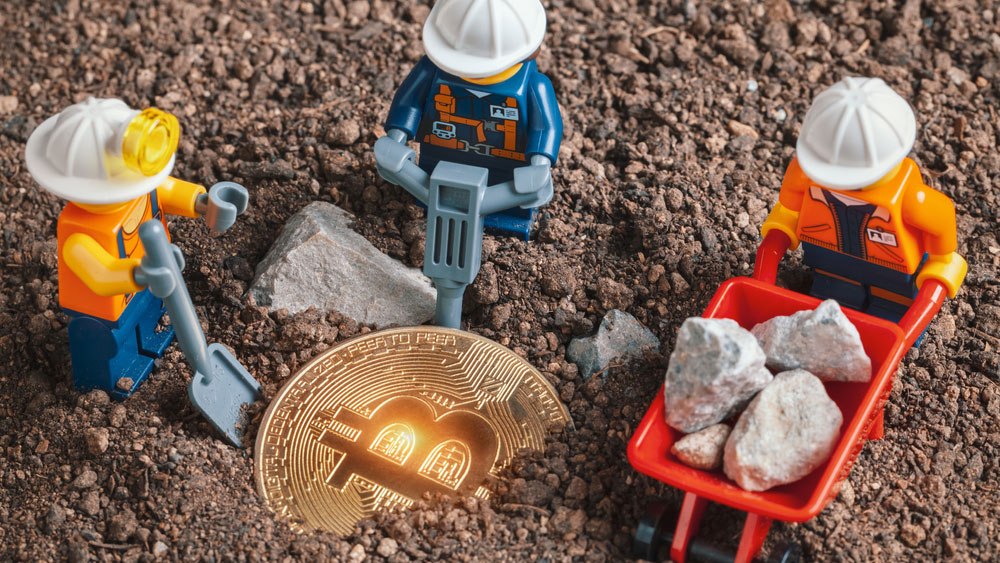Hobbyist solo miner scores a full Bitcoin block worth $270,000 despite 1 in 180 million odds — 3.146 Bitcoins mined by a single low-powered 6 TH/s ASIC with about 0.0000007% of the network’s hashrate
Solo miner controls roughly 0.0000007 % of the Bitcoin network’s hash‑power yet captures full block reward.

A solo miner running just 6 terahashes per second of computing power has overcome odds of about 1 in 180 million to mine a full Bitcoin block via the CKpool pool. According to CoinDesk, the miner secured 3.146 BTC plus transaction fees — a payout worth around US$270,000 at current rates, despite commanding only about 0.0000007% of the network’s estimated 855.7 exahashes/sec of hash‑rate.
The figure was confirmed by CKpool creator Con Kolivas, who said that the miner only had “a one in 180 million chance” of solving a block on any given day. The miner employed an older‑generation ASIC capable of roughly 6 TH/s, submitted shares to CKpool’s solo‑mining infrastructure, and retained the full block reward minus CKpool’s 2% pool fee.
Congratulations to extremely lucky miner 3K99~Ct8M with only SIX TH for solving the 308th solo block at https://t.co/UWgBvLkDqc. A miner of this size has only a a in 180 million chance of solving a block each day! https://t.co/Jx3fTUlaIe pic.twitter.com/F5CKVrEfYtNovember 21, 2025
Headline‑grabbing payout aside, the miner’s win shows how rare solo mining has become for small operators. With network difficulty and aggregate hash‑power climbing steadily, the chance of a tiny miner solving a block without significant scale is vanishingly small. In practical terms, operating at 6 TH/s in a sea of hundreds of exahashes is akin to buying one lottery ticket in a contest where billions of tickets are already in play.
CKpool’s model allows hobbyists to attempt solo mining while routing their work through the pool's infrastructure. It provides a lightweight setup that connects miners to the Bitcoin network without requiring them to run a full node or manage their own backend. That means they preserve solo‑reward ownership rather than sharing a reward across many contributors as happens in standard pooled mining.
For this miner, the choice paid off. That said, the economics of solo mining remain challenging. Running ASIC hardware and paying for electricity and cooling make solo success a highly speculative endeavour or, ultimately, a gamble.
This latest win marks the 308th block mined through CKpool since the software’s launch in 2014, and the first in several months. Moments like this will become all the more rare as the Bitcoin network’s total hash rate continues to climb. They will always be mathematically possible, however, and for some, that'll doubtless be reason enough to continue hashing away.

Follow Tom's Hardware on Google News, or add us as a preferred source, to get our latest news, analysis, & reviews in your feeds.
Get Tom's Hardware's best news and in-depth reviews, straight to your inbox.

Luke James is a freelance writer and journalist. Although his background is in legal, he has a personal interest in all things tech, especially hardware and microelectronics, and anything regulatory.
-
Co BIY How is the expected economic return compared to a lotto ticket ?Reply
Seems like a sound basis for a currency no ? -
ejolson If the big datacenters devoted to crypto switch to AI, maybe hash rates will go down. That would help solo mining, but could also cause the Bitcoin block chain to stall to the point where new transactions happen so slowly there is additional trouble.Reply -
edzieba Reply
Bitcoin mining using GPUs has been dead for over a decade and a half: it's all done with custom ASICs now. Those ASICs are not useful to repurpose to other tasks, so no Bitcoin miners will ever be 'switching' to other tasks, in the same way your oven timer cannot 'switch to AI'.ejolson said:If the big datacenters devoted to crypto switch to AI, maybe hash rates will go down. That would help solo mining, but could also cause the Bitcoin block chain to stall to the point where new transactions happen so slowly there is additional trouble.
In addition, part of the Bitcoin architecture is already regular adjustment in 'block difficulty' (average hashes computed to solve the hash collision challenge that constitutes 'mining' a block). If hashrate were to drop, 'difficulty' would also drop to maintain the average of 10 minutes between blocks.